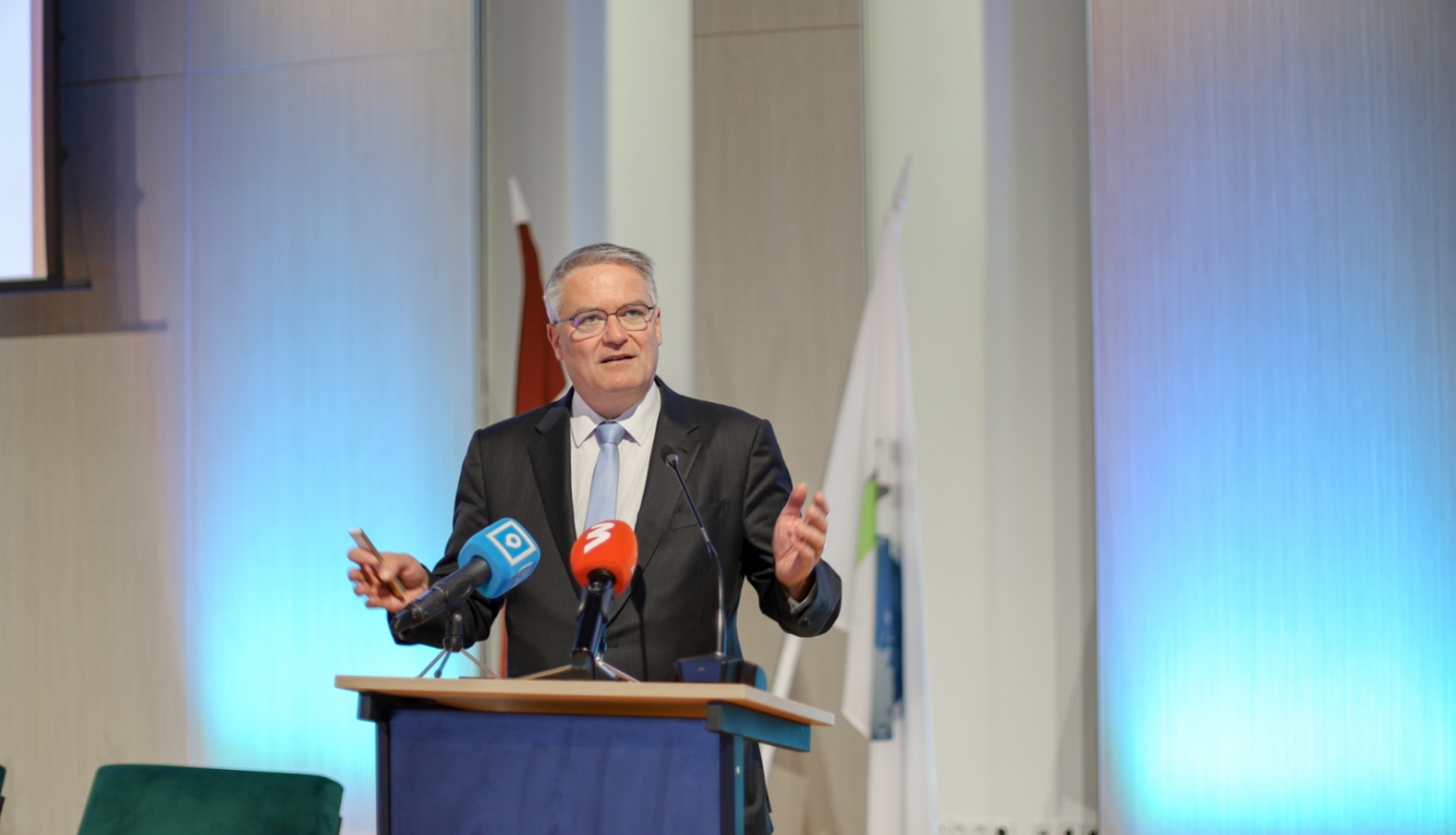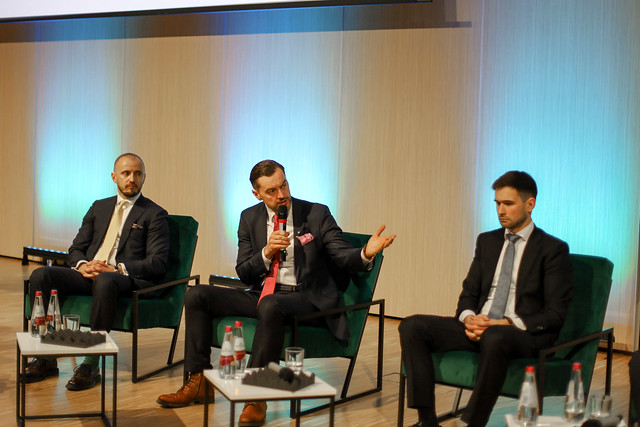Translated using ChatGPT service.
Due to the effects of the pandemic and the war in Ukraine, Latvia has experienced a slowdown in economic growth in recent years, similar to other countries. Therefore, Latvia is recommended to accelerate reforms, strengthen public finances and the quality of public services, and promote investments to ensure sustainable economic growth and improve the standard of living for its residents.
At the same time, experts from the Organisation for Economic Co-operation and Development (OECD) have noted that the digitalization of public services in Latvia has significantly improved, leading to a substantial reduction in the administrative burden. A broad fiscal space has provided strong support to households and businesses during the pandemic and energy crisis. The decrease in inflation due to lower energy and food prices, along with nominal wage growth, is expected to boost real incomes and private consumption in 2024 and 2025.
These are the key conclusions from the latest OECD Economic Survey of Latvia, presented today, April 25, to representatives from ministries, social partners, academia, non-governmental organizations, foreign embassies, and other institutions, as well as Latvia's leading economists and entrepreneurs. The presentation of the survey was opened by OECD Secretary-General Mathias Cormann and Latvia's Minister of Economics Viktors Valainis.
"I am pleased that the conclusions found in the OECD survey regarding the main obstacles and opportunities for Latvia's competitiveness and growth mostly align with the vision and policy of the Ministry of Economics and the government. Insufficient financial availability for investments, incomplete competition in the banking sector, administrative burdens, especially in construction, and a lack of skilled labor are all areas where we have energetically started work. I am confident that this work will bear fruit, and in the coming years, Latvia will emerge as a growth leader in the Baltic region, surpassing our neighbors," emphasized Minister of Economics Viktors Valainis.
The OECD Economic Survey is an independent, fact-based analysis of Latvia's economic development and reform progress, and the recommendations provided by OECD experts serve as a high-quality and useful "guidebook" for policymakers to ensure more sustainable economic growth in Latvia.
The 2024 OECD Economic Survey recommendations cover fiscal policy and the tax system, public administration capacity and work quality, regional development, human capital development, including labor market and education policies, the green transition, including energy and transport policy, institutional environment improvement policy (combating the shadow economy and corruption), and investment and lending policy.
This year's survey conducted an in-depth analysis of investments, with particular attention to the availability of financing for investments.
OECD experts pointed out that since the global financial crisis, investment and lending dynamics in Latvia have been insufficient, and Latvia lags behind other Baltic countries in this regard. OECD experts recommend significantly promoting investments to ensure faster economic growth. The researchers concluded that the credit supply has decreased due to banks' risk aversion, weak competition, and an underdeveloped capital market. Meanwhile, a high level of the shadow economy, competition barriers, and a lack of skilled labor have negatively affected business dynamics, innovation, and investments, as well as hindered the reallocation of resources to more productive companies. Despite an increase in deposits and high profitability of banks, they are reluctant to issue loans. Therefore, to increase companies' opportunities to attract non-bank financing, it is recommended to promote capital market development. Additionally, larger investments in human capital are needed to foster innovation.
With the economic growth slowdown, OECD experts recommend accelerating reforms in Latvia, which are essential for increasing productivity and living standards.
The war in Ukraine initiated by Russia has driven up energy prices and caused disruptions in trade and supply chains, negatively impacting economic growth. Insufficient investments, a lack of skilled labor, and slow digital transformation since the global financial crisis have negatively impacted potential growth and public sector capacity. At the same time, OECD experts noted that the pace of economic growth in Latvia slowed down even before the Covid-19 pandemic and the war in Ukraine. Thus, the OECD indicates that accelerating structural reforms is crucial for increasing productivity and living standards.
Additionally, the OECD recommends strengthening the quality of public finances and services to improve the living standards of residents.
To finance rising expenditures for defense and healthcare and reduce poverty among the elderly, the OECD suggests increasing tax revenues and improving expenditure efficiency and redistribution, shifting the tax burden from labor to other sources such as income, property, and environmental taxes, as high social security contributions, especially for low-wage earners, discourage leaving the shadow economy. Furthermore, experts emphasized that further strengthening tax compliance and combating corruption and money laundering could significantly reduce the shadow economy and expand the tax base. Shifting the tax burden to property taxes would also improve municipal finances, reduce disparities, and decrease inequality. It is also important to continue improving human resource policies in Latvia to enhance the quality of public administration. Meanwhile, OECD experts acknowledged that the digitalization of public services has significantly improved, resulting in a substantial reduction in administrative burden. To reduce carbon emissions, it is recommended to reduce tax exemptions for fossil fuels, establish a Riga Metropolitan Transit Authority to prioritize investments in public transportation and promote coordination among municipalities, and encourage the renovation of multi-apartment buildings.
Such OECD surveys are published every two years; the 2024 Economic Survey of Latvia is the fifth survey (the first survey was published in 2015). The OECD aims to assist governments by providing them with the best possible analysis, research, recommendations, and solutions in almost every area of economic policy.
The full 2024 OECD Economic Survey of Latvia, its summary, and the presentation (in English) are published on the OECD website.
The recording of the survey presentation event, including expert discussions, is available on the Ministry of Economics' YouTube channel and Facebook page.




